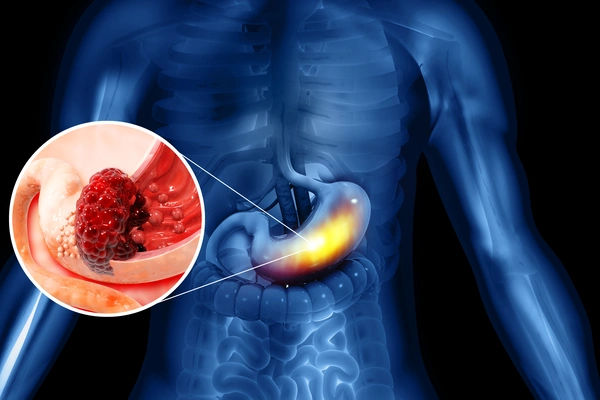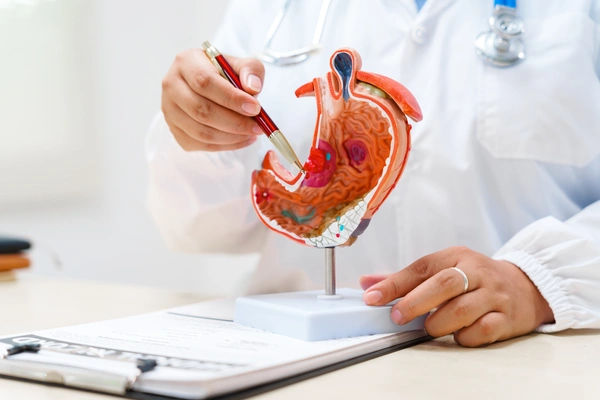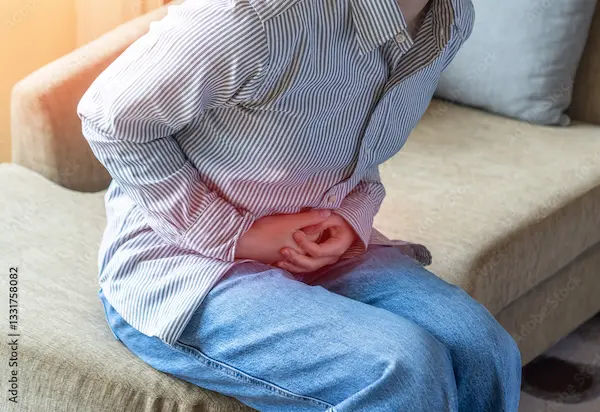Guide to Stomach Cancer Treatment Delhi
Learn about stomach cancer treatment options, including diagnosis, surgery, chemotherapy, and advanced therapies. Get insights on personalized care plans, recovery, and support for patients at every stage of stomach cancer.

Written by Dr. M L Ezhilarasan
Reviewed by Dr. Rohinipriyanka Pondugula MBBS
Last updated on 13th Jan, 2026

Facing a stomach cancer diagnosis can be overwhelming, but being in a medical hub like Delhi provides access to some of the world's best care. This guide simplifies your journey, explaining everything from early symptoms and advanced diagnostics to the latest treatment options offered by Delhi's top hospitals. We’ll help you understand the process, make informed decisions, and know what to expect when seeking the best stomach cancer treatment in Delhi.
Stomach cancer, or gastric cancer, is a significant health concern in India, and timely, effective treatment is crucial for a positive outcome. Delhi, as the nation's capital, stands at the forefront of this fight, boasting a concentration of premier oncology institutes, renowned specialists, and cutting-edge technology. This guide is designed for patients and caregivers seeking a clear, comprehensive roadmap to navigating stomach cancer care in Delhi. We will delve into the symptoms you shouldn't ignore, break down the complex diagnostic process, explore the various surgical and non-surgical treatments available, and discuss how to choose the right medical team for your needs. Our goal is to empower you with knowledge, turning anxiety into action and confusion into clarity as you embark on this critical healthcare journey.
Understanding Stomach Cancer
Stomach cancer begins when healthy cells in the inner lining of the stomach change and grow out of control, forming a mass called a tumour. A tumour can be cancerous (malignant) or benign. A malignant tumour means it can grow and spread to other parts of the body. While the exact cause is often unclear, factors like chronic infection with H. pylori bacteria, a diet high in smoked and salty foods, smoking, and family history can increase risk.
Common Types of Stomach Cancer
The vast majority of stomach cancers (about 90-95%) are adenocarcinomas, which develop from the glandular cells in the stomach's inner lining. Other, rarer types include Gastrointestinal Stromal Tumours (GISTs), carcinoid tumours, and lymphomas. The treatment plan is highly dependent on the specific type and location of the cancer, which is why a precise diagnosis from a top cancer hospital in Delhi is the essential first step.
Symptoms of Stomach Cancer
Early-stage stomach cancer often causes vague, easily overlooked symptoms. However, persistence is key.
Early-Stage Symptoms
- Persistent indigestion or heartburn
- A feeling of bloating or fullness after eating small amounts
- Mild nausea and loss of appetite
- Unexplained fatigue
Advanced-Stage Symptoms
- Persistent abdominal pain or discomfort
- Vomiting, sometimes with blood
- Unintentional and significant weight loss
- Difficulty swallowing
- Blood in the stool (appearing black and tarry)
If symptoms persist beyond two weeks, consult a doctor online with Apollo24|7 for further evaluation. Early consultation can make a profound difference in outcomes.
Consult Top Specialists
How is Stomach Cancer Diagnosed?
A definitive diagnosis involves several steps to confirm the presence of cancer and determine its extent.
Initial Tests and Endoscopy
If stomach cancer is suspected, the first test is usually an upper endoscopy (gastroscopy). A thin, flexible tube with a camera is passed down the throat to examine the stomach lining. Delhi's hospitals use high-definition scopes that provide exceptionally clear images.
Biopsy and Histopathology
During the endoscopy, if any abnormal areas are seen, the doctor will take small tissue samples (a biopsy). These samples are sent to a pathologist who examines them under a microscope to confirm if cancer cells are present and identify the type. Apollo24|7 offers convenient home collection for blood tests that might be needed as part of the initial
workup.
Staging the Cancer
Once cancer is confirmed, staging tests determine if it has spread. This is critical for planning treatment. A CT scan of the chest, abdomen, and pelvis is standard. Many Delhi hospitals now use advanced PET-CT scans, which provide more detailed information about metabolic activity and spread. In some cases, a diagnostic laparoscopy (a minimally invasive surgical procedure) is used to get a direct view inside the abdomen.
Stomach Cancer Treatment Options
Treatment is rarely a single modality. Delhi's leading centres employ a multidisciplinary team (MDT) of surgical, medical, and radiation oncologists who create a personalised plan.
Surgery for Stomach Cancer
Surgery is the primary curative treatment for localised cancer. For very early-stage cancers, an endoscopic mucosal resection (EMR) can remove the tumour without open surgery. For more advanced cases, a gastrectomy (partial or total removal of the stomach) is performed. Delhi is a leader in minimally invasive and robotic-assisted surgery, which offers smaller incisions, less pain, and faster recovery.
Chemotherapy and Targeted Therapy
Chemotherapy uses powerful drugs to kill cancer cells or stop them from dividing. It can be given before surgery (neoadjuvant) to shrink tumours or after (adjuvant) to kill any remaining cells. For cancers with specific genetic markers, targeted therapy drugs attack specific proteins on cancer cells, often with fewer side effects than traditional chemotherapy.
Radiation Therapy
Radiation therapy uses high-energy beams to destroy cancer cells. It is often used in combination with chemotherapy (chemoradiation) before or after surgery. Delhi hospitals are equipped with state-of-the-art technology like IMRT and VMAT, which precisely target the tumour while sparing surrounding healthy tissue.
Immunotherapy
A newer frontier in advanced gastric cancer treatment, immunotherapy drugs help your own immune system recognise and attack cancer cells. They are now a standard option for some patients with advanced or recurrent stomach cancer.
Why Delhi is a Hub for Advanced Stomach Cancer Care?
Delhi's ecosystem provides distinct advantages for cancer patients. The city attracts top-tier surgical and medical oncologists who are often trained at international institutions and have vast experience with complex cases. Furthermore, hospitals invest heavily in the latest technology, such as robotic surgical systems, advanced linear accelerators for radiation, and cutting-edge genomic testing for personalised medicine. This combination of expert human capital and superior technology creates an environment where patients receive world-class care without having to travel abroad.
Recovery and Follow-up Care
Recovery from stomach cancer treatment is a process. Nutritional support is critical, especially after surgery, and most hospitals have dedicated dietitians. Regular follow-up appointments, which include physical exams, blood tests, and periodic scans, are essential to monitor for recurrence and manage any long-term side effects. A strong support system and access to counselling services can significantly improve quality of life during this phase.
Conclusion
A stomach cancer diagnosis is a life-altering event, but it is important to remember that you are not alone and that highly effective treatment is available. Delhi’s medical infrastructure is equipped to provide compassionate, comprehensive, and cutting-edge care every step of the way. This guide has outlined the journey from recognising symptoms to undergoing treatment and recovery. The most critical step is to seek expert medical opinion without delay. If your condition does not improve after trying dietary changes or OTC medications, book a physical visit to a doctor with Apollo24|7 or any other premier institute to get an accurate diagnosis and a clear path forward. Empower yourself with information, lean on your support network, and trust in the expertise available in India's capital.
Consult Top Specialists
Consult Top Specialists

Dr. Anindita Ray
Oncologist
7 Years • MBBS, MD ( Radiation Oncology )
Kolkata
MCR SUPER SPECIALITY POLY CLINIC & PATHOLOGY, Kolkata

Dr Gowshikk Rajkumar
Oncologist
10 Years • MBBS, DMRT, DNB in Radiation oncology
Bengaluru
Apollo Clinic, JP nagar, Bengaluru

Dr. Sanchayan Mandal
Medical Oncologist
17 Years • MBBS, DrNB( MEDICAL ONCOLOGY), DNB (RADIOTHERAPY),ECMO. PDCR. ASCO
Kolkata
MCR SUPER SPECIALITY POLY CLINIC & PATHOLOGY, Kolkata
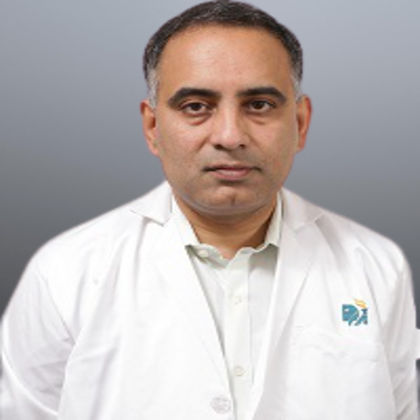
Dr. Raja T
Oncologist
20 Years • MBBS; MD; DM
Chennai
Apollo Hospitals Greams Road, Chennai
(200+ Patients)
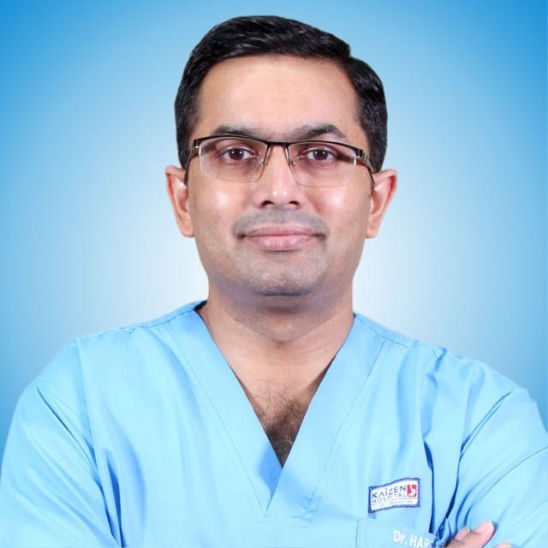
Dr. Harsh J Shah
Surgical Oncologist
15 Years • MS, MCh (GI), DrNB (GI)
Ahmedabad
Apollo Hospitals Gandhinagar, Ahmedabad
Consult Top Specialists

Dr. Anindita Ray
Oncologist
7 Years • MBBS, MD ( Radiation Oncology )
Kolkata
MCR SUPER SPECIALITY POLY CLINIC & PATHOLOGY, Kolkata

Dr Gowshikk Rajkumar
Oncologist
10 Years • MBBS, DMRT, DNB in Radiation oncology
Bengaluru
Apollo Clinic, JP nagar, Bengaluru

Dr. Sanchayan Mandal
Medical Oncologist
17 Years • MBBS, DrNB( MEDICAL ONCOLOGY), DNB (RADIOTHERAPY),ECMO. PDCR. ASCO
Kolkata
MCR SUPER SPECIALITY POLY CLINIC & PATHOLOGY, Kolkata

Dr. Raja T
Oncologist
20 Years • MBBS; MD; DM
Chennai
Apollo Hospitals Greams Road, Chennai
(200+ Patients)

Dr. Harsh J Shah
Surgical Oncologist
15 Years • MS, MCh (GI), DrNB (GI)
Ahmedabad
Apollo Hospitals Gandhinagar, Ahmedabad
More articles from Stomach Cancer
Frequently Asked Questions
1. What is the approximate stomach cancer surgery cost in Delhi?
The cost can vary widely based on the procedure (minimally invasive vs. open), the hospital, and the surgeon's expertise. It can range from ₹2.5 lakhs to over ₹10 lakhs. It's best to consult directly with the hospital for a detailed breakdown.
2. Who is considered the best oncologist for stomach cancer in Delhi?
Delhi has many renowned specialists. The 'best' is subjective and depends on your specific case. Look for senior surgical oncologists with high volumes of gastric cancer procedures or medical oncologists who specialise in gastrointestinal cancers at major hospitals like AIIMS, Apollo, Rajiv Gandhi Cancer Institute, or Medanta.
3. What are the signs of stomach cancer in its early stages?
Early signs are often subtle and mimic common indigestion. They include persistent heartburn, a feeling of fullness after small meals, mild nausea, and bloating. Any such symptom that doesn't go away should be checked.
4. How effective is immunotherapy for gastric cancer?
Immunotherapy has revolutionised treatment for certain advanced stomach cancers, particularly those that test positive for specific biomarkers like MSI-H or PD-L1. It doesn't work for everyone, but when it does, it can provide long-lasting control of the disease.
5. What is the survival rate for stomach cancer?
Survival rates depend heavily on the stage at diagnosis. Early-stage cancer that is surgically removed has a much higher 5-year survival rate (often over 60-70%) compared to cancer that has spread to distant organs. This is why early detection is so crucial.
